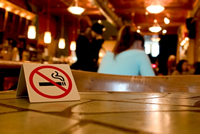Lesson 1: Democratic and Economic Equality
| Site: | MoodleHUB.ca 🍁 |
| Course: | Social 30-2 RVS |
| Book: | Lesson 1: Democratic and Economic Equality |
| Printed by: | Guest user |
| Date: | Wednesday, 31 December 2025, 9:24 PM |
1. Introduction
Democratic and Economic Equality
Issue Question: Are the values of liberalism viable?
- Appreciate various perspectives regarding the viability of liberalism
- Appreciate various perspectives regarding the promotion of liberalism within political and economic systems
- Explore the extent to which governments should reflect the will of the people
- Examine the extent to which the practices of political and economic systems reflect the values of liberalism
- Explore the extent to which governments should encourage economic equality
Duration: 1 block (80 mins +homework)
As you continue to determine to what extent you should adopt an ideology, consider which values you believe are most and least important to you and your society, including consideration of the values of liberalism and individualism. Next, evaluate how these values are implemented in the modern world. In this unit you will reflect on the extent to which liberal values are viable to address issues and maintain a foundation for our political and economic systems?
Key Terms
- coalition government
- command economy
- consensus
- democracy
- direct democracy
- first-past-the-post
- interest group
- majority government
- minority government
- mixed economy
- party solidarity
- plebiscite
- proportional representation
- referendum
- representation by population
- representative democracy
- social safety net
- will of the people
2. Lesson
Liberal democratic governments must decide what is best for the people-the common good.Political leaders must decide how much freedom of choice should be restricted to protect the good of the people. This is not an easy choice. Modern liberal leaders generally support laws that protect people for the good of all. As you read this unit, put yourself in the place of a political leader who must make these choices. A political leader must decide between enacting laws that restrict and control individual freedom or that allow people to do what they want, even if it harms or disturbs others. |
| Modern liberal democracies have had to balance the needs of the common good with individual freedoms. For instance the use of tobacco in public places has required political leaders in liberal democracies to balance the right of smokers and non-smokers. |
Should governments protect the rights of the smokers or the non-smokers? For many, the answer seems easy. Government should protect the rights of the non-smokers. However, what about the rights of the smokers? Shouldn't a liberal democracy protect
their rights too?
Modern liberals would most likely support banning the use of tobacco in public places because it is important to support the common good. Why should non-smokers be exposed to the harmful effects of
second-hand smoke? Why should non-smokers pay extra taxes for the added health care expenses for those who choose to smoke and put their health at risk? Governments must often deal with controversial issues such as this one.


What do you think?
What do you think about smoking in public places? Could you imagine sitting in a restaurant where four people are smoking? Everyone in the restaurant would have to smell the cigarette smoke.
Should smokers have the right to smoke anywhere?
- Should non-smokers have the right to a smoke-free environment?
Municipal, provincial, and federal governments in Canada have been introducing laws all across the country to help reduce the number of smokers. The government believes that the tobacco companies should be paying the health care bills of Canadians. Those who choose not to smoke should not have the responsibility of paying the bills for those who do choose to smoke. In January 2008, Alberta banned smoking in all public places, including bars, bingo halls, billiard halls, bowling alleys, and casinos.
According to the Canadian Cancer Society
Tobacco use is the number one cause of preventable disease, disability, and death in Canada. It is responsible for more than 47,500 deaths per year in Canada.
Should Canada become smoke-free?
Who should decide this?
How should this be decided?
Whose rights should come first?
3. Conclusion
In this unit, you will explore the basic beliefs and values associated with liberal democracy. Liberal democracy is one form of liberalism that allows the people the right to elect other people to represent them in government. As you read about democracy, think about the smoking issue to help you keep focused. It is the role of liberal governments to represent best the needs of the people that elect them. In this unit, you will explore the extent to which the values of liberalism are viable in a contemporary world.